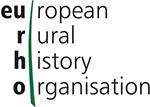II. Keynote Presentation
Dr. Virgiliu Țârău- Faculty of History and Philosophy, Babeș-Bolyai University, Cluj-Napoca

Observing the Land and the Peasants: The Party and Communist Secret Services Archives in Romania
The archival revolution that takes place in Romania in the last 20 years reveal the richness of the new information related to the communist period. Rural area transformations, the fate of the peasants and the process of the collectivization of agriculture are also well represented in the official papers of the power in Romania. Based on the recent literature of the topic on USSR, Romania and Eastern Europe (Verdey and Kligman, Iordachi and Apor, Iordachi and Dobrincu etc.), but also on our extensive research in different types of archives, we will discuss the quality of the new information that are available for research on these topics. After a short presentation of what remains in the archives, we will try to explain how these rich historical sources were produced, and what kind of truth they demonstrate. The qualitative approach is important for the understanding of the transformative processes that were developed from above. We consider that changes in property relations in the rural area involves not just mutations in rights, but cultural, social, and political relationships as well. In consequence we will discuss the institutional settings in which the information were produced (there are very different communist power places - local, raional, county, regional and central - were historical sources are nurtured: party structures, administrative organs, specialized services - in rural economy, health, agronomy, forestry etc.). In this context, we will look to the observation practices developed by these structures of power and the mechanisms developed in order to fabricate the big picture of these transformations. In other words, we will look to the process that party officials developed for the education of the propagandists and other executives in the rural area in order to achieve the objectives in ideological and practical terms with the help of reporting procedures: directives, questionnaires, reports, statistics etc. These documents are not only radiographical images of the rural area, but also ideological transformative tools. From questions and indications for the elaboration procedures each activist could learn to speak bolshevik to different layers of power in political and administrative hierarchy. On the other side, they are important for the way in which these middle wheels (activists) of the system double performed in the rural world: as executors of the official instructions, but also as ideological translators, in language terms, of the messages of the power. They learn duplicity and they performed it their relation with their superiors and with their subjects of power, the peasants. If the first cadre members had no actual competence of doing their work and many of them were illiterate, in time they developed skills to mediate between the worlds they deserve. An important role in the transformative process of the rural world had the regime political police Securitate. After an energic opening, the collectivization process slow down because the communist apparatus was confronted with the resistance of the peasants, but also with their own inability to deal with the procedures and norms that were borrowed from Soviet Union. In consequence, the communist nomenklatura ask for help, and in order to keep under control the rural world, secret police become involved in daily activities that were developed to increase the collectivization process rhythm. In our intervention we will look – based on research in the archives of the former secret services to the way in which these agencies acted in order to improve the function of the collectivist structures, but also to destroy the resistance of the peasants to this process. We will discuss the repressive policies, but we will have in our attention also the adaptive, conformist policies, that result from the pressures that were imposed by the political police against the pillars of the rural society (priests, teachers and kulaks). On the other side, we will see that the same functions and language structures appear in the records kept or produced by the Securitate workers. Their labor was organized on operational objectives, in Foucault terms, to discipline and punish, surveillance and punishment of their subjects (collectivist structures, peasants, activists etc.). As a result, their archives (Penal, Informative, Documentary or Network) give us a dynamic image of the operational transformation of the rural world.


